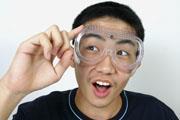Researchers from the National Institute of Education in Singapore have attempted to determine why pupils from Singapore and Japan are so successful in answering science questions.

In the 1995 and 1999 Trends in International Mathematics and Science Studies (TIMSS) pupils from Singapore and Japan came top of the league table while England was ranked 8th. A group of researchers from the National Institute of Education in Singapore has attempted to determine why pupils from the two Far Eastern countries are so successful in answering science questions.1
Toh Kok Aun and coworkers studied the responses pupils had given on the background questionnaire linked to the test questions. These provided information on the science studied, resources used and the type of classroom interaction experienced by the pupils. The researchers also investigated educational practices in the two countries by looking at a range of sources and case studies.
They found that in both countries education is highly valued and there is a desire to learn both in school and at home. Compared with other countries, there are fewer absenteeisms, late attendance and discipline problems. About 80 per cent of the pupils used home computers to help them with schoolwork. However, the Singapore team report that hours of science homework and participation in private tuition or cramming lessons were not prerequisites to high scores in the tests.
In Japan science teaching has shifted from lecturing to the constructivist approach, in which pupils give their own explanations of phenomena and these are then discussed with their peers and the teacher. To improve classroom practice teachers regularly take part in 'research lessons', in which a teacher is observed in the classroom by several colleagues followed by a detailed analysis of the lesson.
In Singapore the science teaching now emphasises 'cultivating' change. School leaders are expected to design an 'innovative architecture' that enables the school to do new things, continuously develop and improve. This has led to a move in the classroom from teacher-focused work to pupil-centred work. The teacher adopts the role of co-learner and facilitator, using ICT when appropriate, rather than instructor and information provider. Both countries also have an on-going process to review continually the curriculum to ensure that it remains relevant.
References
- T. K. Aun et al, Educ. Res. Policy Pract., 2006, 5, 1.






No comments yet